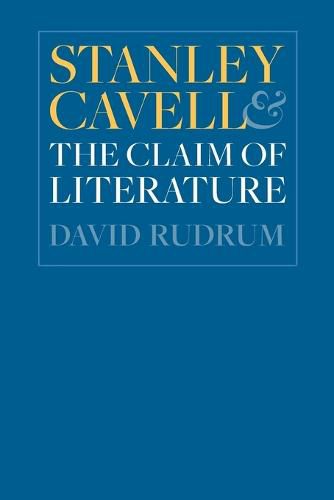Readings Newsletter
Become a Readings Member to make your shopping experience even easier.
Sign in or sign up for free!
You’re not far away from qualifying for FREE standard shipping within Australia
You’ve qualified for FREE standard shipping within Australia
The cart is loading…






An analysis of the significance of literature in the work of one of America’s most influential contemporary philosophers.
Stanley Cavell is widely recognized as one of America’s most important contemporary philosophers, and his legacy and writings continue to attract considerable attention among literary critics and theorists. Stanley Cavell and the Claim of Literature comprehensively addresses the importance of literature in Cavell’s philosophy and, in turn, the potential effect of his philosophy on contemporary literary criticism.
David Rudrum dedicates a chapter to each of the writers that principally occupy Cavell, including Shakespeare, Thoreau, Beckett, Wordsworth, Ibsen, and Poe, and incorporates chapters on tragedy, skepticism, ethics, and politics. Through detailed analysis of these works, Rudrum explores Cavell’s ideas on the nature of reading; the relationships among literary language, ordinary language, and performative language; the status of authors and characters; the link between tragedy and ethics; and the nature of political conversation in a democracy.
$9.00 standard shipping within Australia
FREE standard shipping within Australia for orders over $100.00
Express & International shipping calculated at checkout
An analysis of the significance of literature in the work of one of America’s most influential contemporary philosophers.
Stanley Cavell is widely recognized as one of America’s most important contemporary philosophers, and his legacy and writings continue to attract considerable attention among literary critics and theorists. Stanley Cavell and the Claim of Literature comprehensively addresses the importance of literature in Cavell’s philosophy and, in turn, the potential effect of his philosophy on contemporary literary criticism.
David Rudrum dedicates a chapter to each of the writers that principally occupy Cavell, including Shakespeare, Thoreau, Beckett, Wordsworth, Ibsen, and Poe, and incorporates chapters on tragedy, skepticism, ethics, and politics. Through detailed analysis of these works, Rudrum explores Cavell’s ideas on the nature of reading; the relationships among literary language, ordinary language, and performative language; the status of authors and characters; the link between tragedy and ethics; and the nature of political conversation in a democracy.